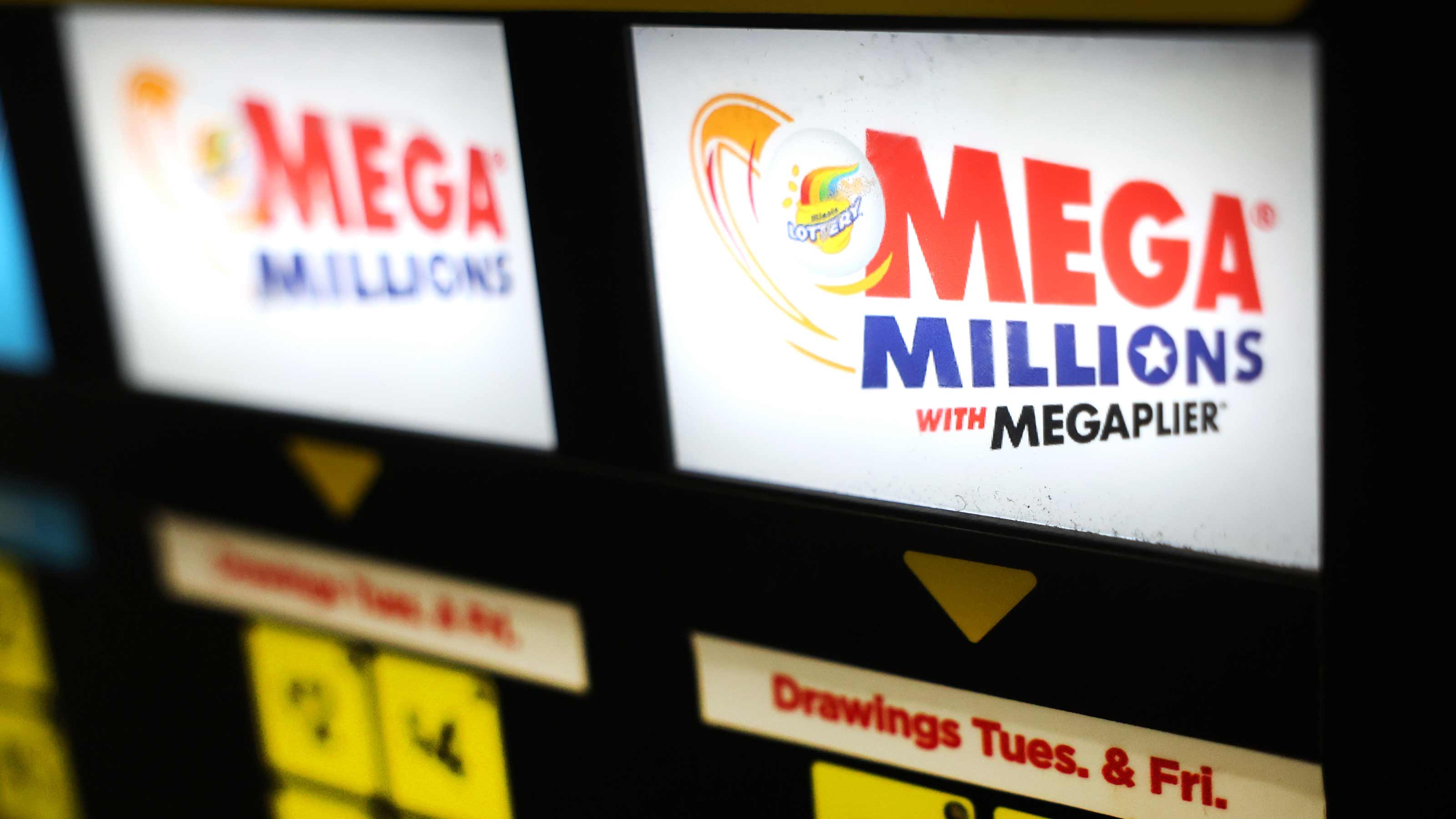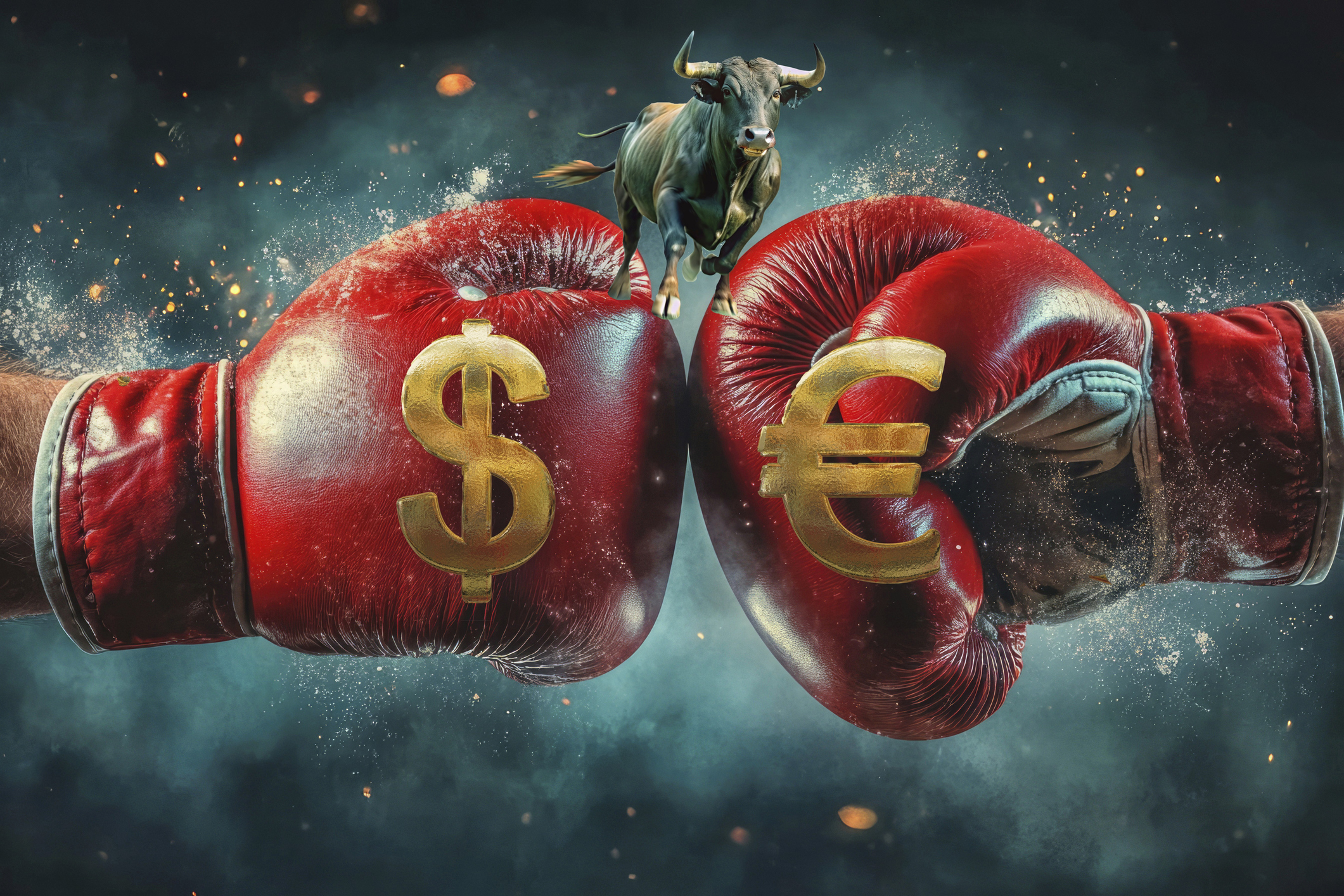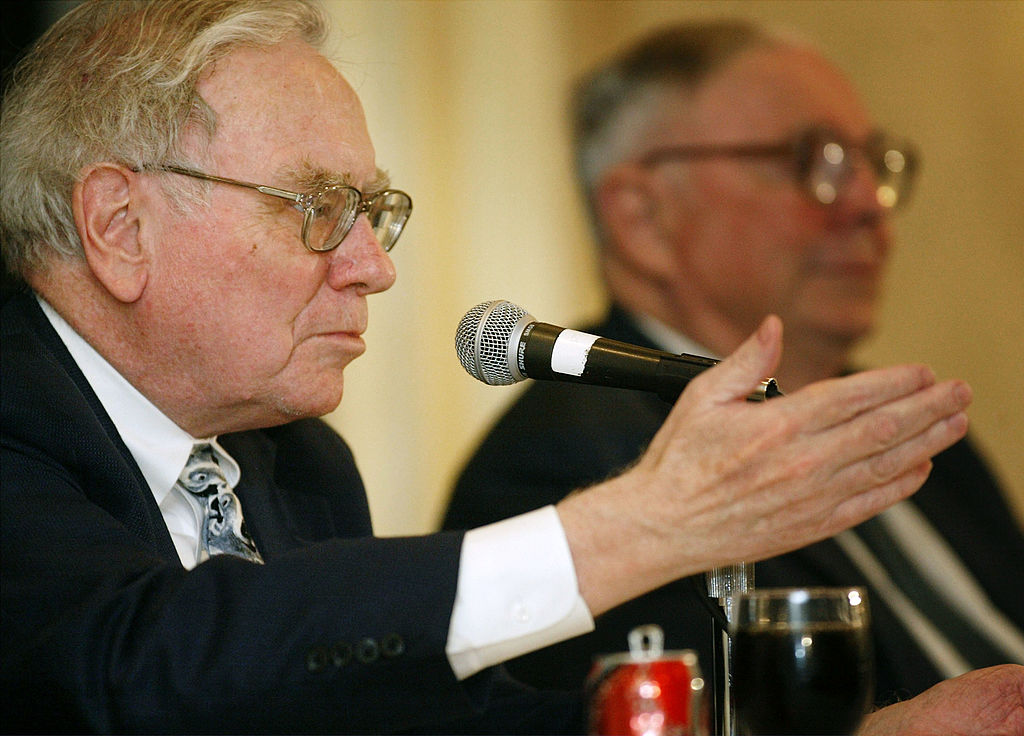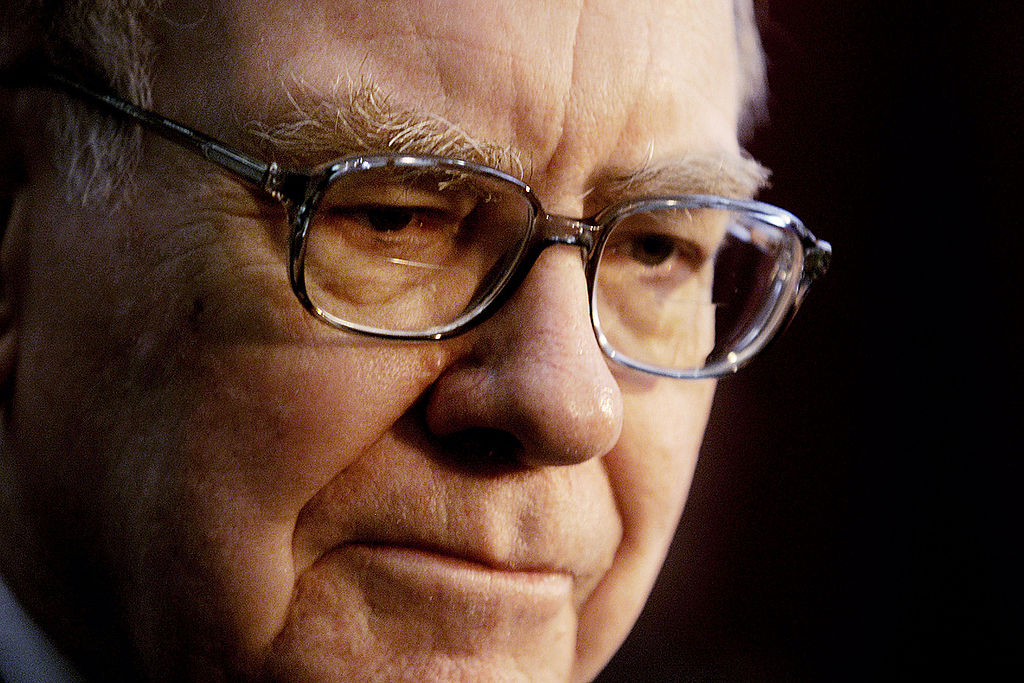How I'm Going to Invest My Mega Millions Lottery Jackpot
The odds of winning the Mega Millions lottery are effectively zero, but here's how I'm investing my fortune should I hit the jackpot.


Profit and prosper with the best of Kiplinger's advice on investing, taxes, retirement, personal finance and much more. Delivered daily. Enter your email in the box and click Sign Me Up.
You are now subscribed
Your newsletter sign-up was successful
Want to add more newsletters?

Delivered daily
Kiplinger Today
Profit and prosper with the best of Kiplinger's advice on investing, taxes, retirement, personal finance and much more delivered daily. Smart money moves start here.

Sent five days a week
Kiplinger A Step Ahead
Get practical help to make better financial decisions in your everyday life, from spending to savings on top deals.

Delivered daily
Kiplinger Closing Bell
Get today's biggest financial and investing headlines delivered to your inbox every day the U.S. stock market is open.

Sent twice a week
Kiplinger Adviser Intel
Financial pros across the country share best practices and fresh tactics to preserve and grow your wealth.

Delivered weekly
Kiplinger Tax Tips
Trim your federal and state tax bills with practical tax-planning and tax-cutting strategies.

Sent twice a week
Kiplinger Retirement Tips
Your twice-a-week guide to planning and enjoying a financially secure and richly rewarding retirement

Sent bimonthly.
Kiplinger Adviser Angle
Insights for advisers, wealth managers and other financial professionals.

Sent twice a week
Kiplinger Investing Weekly
Your twice-a-week roundup of promising stocks, funds, companies and industries you should consider, ones you should avoid, and why.

Sent weekly for six weeks
Kiplinger Invest for Retirement
Your step-by-step six-part series on how to invest for retirement, from devising a successful strategy to exactly which investments to choose.
Our current national mania for the Mega Millions jackpot, projected to hit $1.55 billion by Tuesday's drawing, would almost certainly excite the scorn of Ambrose Bierce.
A largely forgotten American writer, Bierce was the guy who came up with that oft-quoted line about the lottery being a tax on people who are bad at math. His whole brand was acerbic wit, and I guess he was considered to be pretty hilarious by the standards of 1911, but on this particular subject I think Bierce was a jerk.
The vast majority of people plonking down two bucks for a Mega Millions lottery ticket are not statisticians, and yet I bet they know intuitively that they have no realistic chance of winning. Sure, you could tell them that the odds of guessing all six numbers correctly – 1 in 302.6 million – are effectively the same as zero. Grab folks by the hair and explain that they are far more likely to die in a dog attack (odds: 1 in 58,843), and they're more apt to weigh the possibility of Fluffy murdering them in their sleep than consider their chances of not hitting the jackpot.
From just $107.88 $24.99 for Kiplinger Personal Finance
Become a smarter, better informed investor. Subscribe from just $107.88 $24.99, plus get up to 4 Special Issues

Sign up for Kiplinger’s Free Newsletters
Profit and prosper with the best of expert advice on investing, taxes, retirement, personal finance and more - straight to your e-mail.
Profit and prosper with the best of expert advice - straight to your e-mail.
Remember the tagline "a dollar and a dream?" That's what it's all about – for most people anyway. Sure, there are folks who dump serious money into lottery tickets. This is both bad and sad. But most of us just want to indulge in a little reverie. Cognitively I'm quite certain that I'm not going to win the Mega Millions. And yet I also know that someone somewhere eventually will. And until that person hits the number, why not irrationally fantasize about it being me?
Investing my millions
The true purpose of this post is to illustrate how even a teeny, tiny bit of interest earned on a big enough chunk of money will generate tremendous income. And that's especially the case once we factor in the miracle of compounding. There's an old finance joke about compounding that goes like this:
Question: How do you make a great fortune on Wall Street?
Answer: Start with a small one.
Whomever wins the Mega Millions jackpot will find themselves holding a lot more than a small fortune.
As noted above, the Mega Millions jackpot is projected to top $1.55 billion by Tuesday's drawing. The lump sum payout, should the winner elect to go that route, will be something like $757.2 million. Federal taxes on lottery winnings will reduce that sum substantially. And unless the winner lives in one of the eight states that don't tax lottery winnings, state taxes will take a big bite too.
Nevertheless, the Mega Millions winner will still walk away with a mind-blowing amount of cash. Since this is just for fun, let's keep things simple and say that the Mega Millions winner takes home an even $500 million.
Let's pause on that number for a moment. A half-a-billion dollars, after taxes, in cash, is a stunning amount of money. That puts you not just in the top 1%, it makes you a member of the fraction-of-the-1%. In the nomenclature of the wealth management industry, you are now known as an ultra-high-net-worth (UHNW) individual. You are a whale.
So how do you invest these many hundreds of millions of dollars?
Here's my serious answer: you need to hire professionals. You must avail yourself of comprehensive wealth management services that can handle everything from planning to accounting to taxes to legal matters. Private bankers, sundry types of wealth managers and registered investment advisors (RIAs) catering to UHNW clients, or family offices (which are kind of like private hedge funds offering one-stop shopping for the super rich) will do – and they will all fight for your business.
It's a nice problem to have, for sure, but it's still a problem. And let's never forget the iron rule: more money, more problems.
Putting my Mega Millions in Treasurys
Since I want more money but I don't want more problems, I have daydreamed about the laziest and easiest way to invest such an obscene amount of money. My conclusion: Treasury securities.
Treasury securities are just about the safest thing you can do with your cash. The risk of default is vanishingly small, a recent downgrade of the United States' credit rating, notwithstanding. The federal government is going to pay back your loan. And if you buy and hold your Treasury bills, notes and bonds to maturity, you needn't really worry about interest rate risk. True, there's inflation risk, but then you can manage that by building a bond ladder. A bond ladder also helps with the aforementioned interest rate risk.
Oh, and in another plus, interest income earned on Treasury securities is exempt from all state and local income taxes.
The inverted yield curve means that short-term government debt yields a lot more than long-term debt these days, which is weird and wrong and won't be the case forever. As of August 4, however, 1-month Treasury bills were yielding 5.54%. You won't get that exact yield on the secondary market or at auction (the Treasury allows folks to buy up to $10 million in Treasury securities if they make a non-competitive bid), but let's do the arithmetic for the lulz.
At 5.54%, the income from lending the federal government $500 million for one month comes to $2.3 million, or $27.7 million annualized. That's not a bad payday, especially when it's your cash that's doing all the heavy lifting. You can see why Warren Buffett, chairman and CEO of Berkshire Hathaway (BRK.B), likes to keep so much of his holding company's cash circulating in short-term Treasurys.
Further down the yield curve, the benchmark 10-year Treasury note yielded 4.05% as of August 4. At that rate, a $500 million investment would pay $10,125,000 every six months for the next decade – at which point the government would return the half-billion dollars you so generously leant it way back when.
The point here is that even a measly 3% coupon on "only" $100 million worth of bonds equals $3 million in income a year. Reinvest what you don't spend and watch your fortune compound exponentially.
Whatever I ultimately do with my Mega Millions millions, I will be focused on the return of my principal, not the return on my principal. When you have $500 million to play with, even low returns generate huge sums. Less risk equals less reward, but if you've already hit the jackpot, how much more reward do you need?
More columns by Dan Burrows
Profit and prosper with the best of Kiplinger's advice on investing, taxes, retirement, personal finance and much more. Delivered daily. Enter your email in the box and click Sign Me Up.

Dan Burrows is Kiplinger's senior investing writer, having joined the publication full time in 2016.
A long-time financial journalist, Dan is a veteran of MarketWatch, CBS MoneyWatch, SmartMoney, InvestorPlace, DailyFinance and other tier 1 national publications. He has written for The Wall Street Journal, Bloomberg and Consumer Reports and his stories have appeared in the New York Daily News, the San Jose Mercury News and Investor's Business Daily, among many other outlets. As a senior writer at AOL's DailyFinance, Dan reported market news from the floor of the New York Stock Exchange.
Once upon a time – before his days as a financial reporter and assistant financial editor at legendary fashion trade paper Women's Wear Daily – Dan worked for Spy magazine, scribbled away at Time Inc. and contributed to Maxim magazine back when lad mags were a thing. He's also written for Esquire magazine's Dubious Achievements Awards.
In his current role at Kiplinger, Dan writes about markets and macroeconomics.
Dan holds a bachelor's degree from Oberlin College and a master's degree from Columbia University.
Disclosure: Dan does not trade individual stocks or securities. He is eternally long the U.S equity market, primarily through tax-advantaged accounts.
-
 The New Reality for Entertainment
The New Reality for EntertainmentThe Kiplinger Letter The entertainment industry is shifting as movie and TV companies face fierce competition, fight for attention and cope with artificial intelligence.
-
 Stocks Sink With Alphabet, Bitcoin: Stock Market Today
Stocks Sink With Alphabet, Bitcoin: Stock Market TodayA dismal round of jobs data did little to lift sentiment on Thursday.
-
 Betting on Super Bowl 2026? New IRS Tax Changes Could Cost You
Betting on Super Bowl 2026? New IRS Tax Changes Could Cost YouTaxable Income When Super Bowl LX hype fades, some fans may be surprised to learn that sports betting tax rules have shifted.
-
 Dow Soars 588 Points as Trump Retreats: Stock Market Today
Dow Soars 588 Points as Trump Retreats: Stock Market TodayAnother up and down day ends on high notes for investors, traders, speculators and Greenland.
-
 Stocks Struggle for Gains to Start 2026: Stock Market Today
Stocks Struggle for Gains to Start 2026: Stock Market TodayIt's not quite the end of the world as we know it, but Warren Buffett is no longer the CEO of Berkshire Hathaway.
-
 Risk Is On Again, Dow Jumps 381 Points: Stock Market Today
Risk Is On Again, Dow Jumps 381 Points: Stock Market TodayThe stock market started the week strong on signs the government shutdown could soon be over.
-
 Stocks at New Highs as Shutdown Drags On: Stock Market Today
Stocks at New Highs as Shutdown Drags On: Stock Market TodayThe Nasdaq Composite, S&P 500 and Dow Jones Industrial Average all notched new record closes Thursday as tech stocks gained.
-
 Stocks Slide to Start September: Stock Market Today
Stocks Slide to Start September: Stock Market TodaySeasonal trends suggest tough times for the stock market as we round into the end of the third quarter.
-
 9 Warren Buffett Quotes for Investors to Live By
9 Warren Buffett Quotes for Investors to Live ByWarren Buffett transformed Berkshire Hathaway from a struggling textile firm to a sprawling conglomerate and investment vehicle. Here's how he did it.
-
 A Timeline of Warren Buffett's Life and Berkshire Hathaway
A Timeline of Warren Buffett's Life and Berkshire HathawayBuffett was the face of Berkshire Hathaway for 60 years. Here's a timeline of how he built the sprawling holding company and its outperforming equity portfolio.
-
 Berkshire Buys the Dip on UnitedHealth Group Stock. Should You?
Berkshire Buys the Dip on UnitedHealth Group Stock. Should You?Buffett & Co. picked up UnitedHealth stock on the cheap, with the embattled blue chip one of the newest holdings in the Berkshire Hathaway equity portfolio.